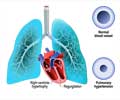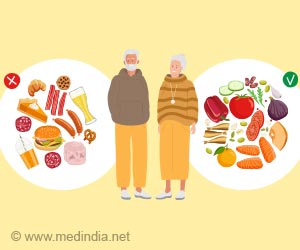- Anxiety and depression can impact the blood pressure
- Elevated diastolic blood pressure can lead to a neurotic personality trait
Does Blood Pressure Affect Mental Health
It is believed that psychological elements such as anxiety, depression, and neuroticism- a personality trait characterized by vulnerability to unpleasant emotions, including anxiety and depression- are linked to high blood pressure, a key risk factor for cardiovascular disease. But it is unclear which causes what.Over 1000 genetic single nucleotide polymorphisms, or SNPs for short, have been linked to blood pressure, accounting for between 30 and 60% of it. SNPs aid in predicting an individual's response to specific medications, susceptibility to environmental influences, and the likelihood of contracting diseases.
The researchers used whole genome DNA that was extracted from blood samples of people with primarily European ancestry from eight large-scale study datasets.
They used Mendelian randomization to compare four psychological states- anxiety (463,010 samples), depressive symptoms (180,866), neuroticism (170,911), and subjective well-being- with four blood pressure traits- systolic blood pressure (736,650 samples), diastolic blood pressure (736,650 samples), and high blood pressure (above 140/90 mm Hg) (298,420 samples).
Anxiety, depressive symptoms, and subjective well-being were not significantly impacted by high blood pressure or diastolic blood pressure, according to the analyses.
The researchers are aware that their findings have some limitations. For instance, pleiotropy- where one gene might affect numerous traits, cannot not be entirely disregarded. Additionally, it is possible that the findings only apply to people with European ancestry.
Neuroticism and High Blood Pressure
“Individuals with neuroticism can be sensitive to the criticism of others, are often self-critical, and easily develop anxiety, anger, worry, hostility, self-consciousness, and depression. Neuroticism is viewed as a key causative factor for anxiety and mood disorders. Individuals with neuroticism more frequently experience high mental stress, which can lead to elevated [blood pressure] and cardiovascular diseases,” said the researchers.They suggest, “Appropriate surveillance and control of blood pressure can be beneficial for the reduction of neuroticism, neuroticism-inducing mood disorders, and cardiovascular diseases.”
Source-Medindia
















